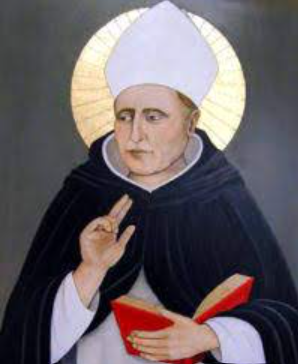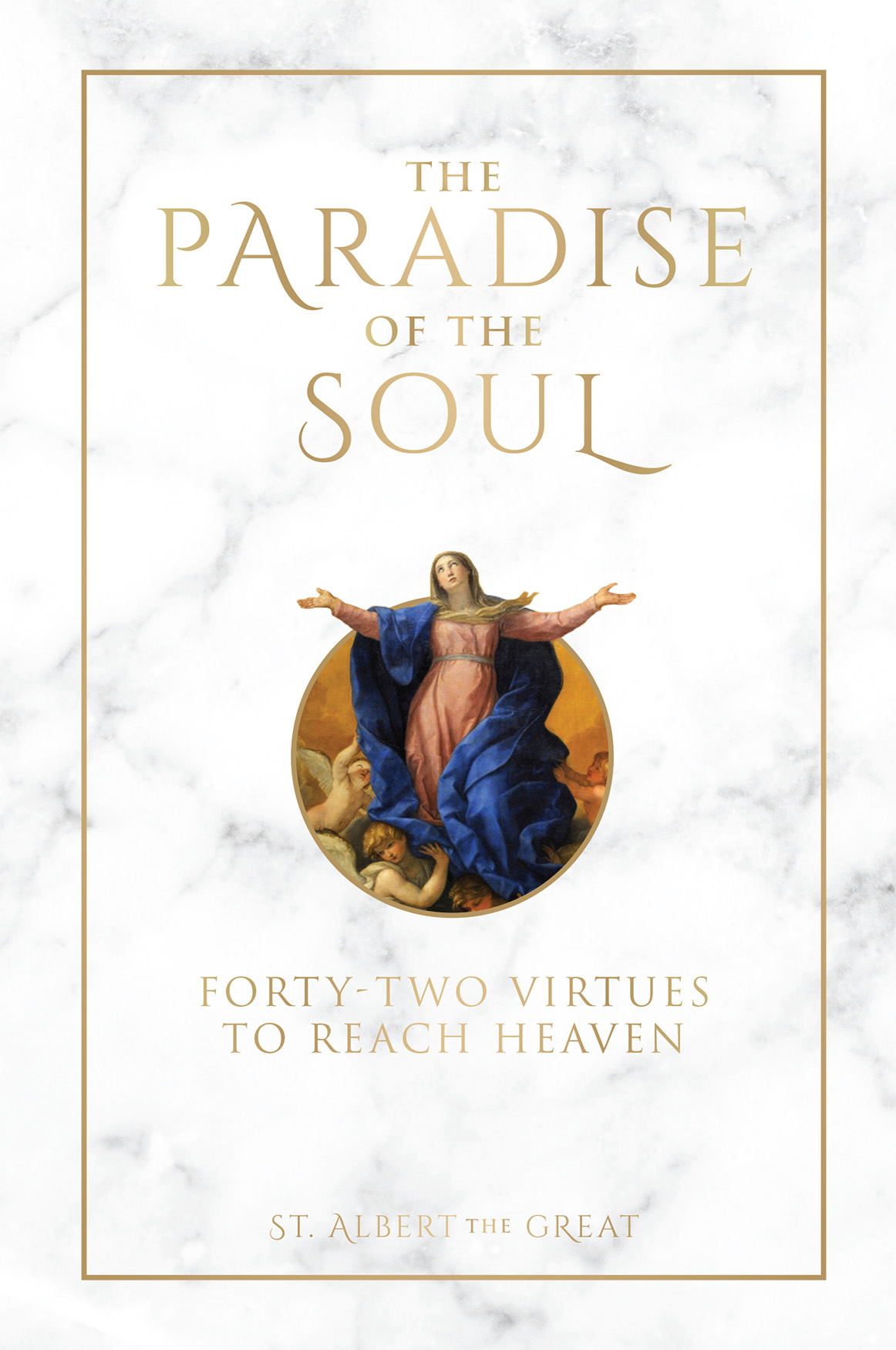Cultivate true prudence with Saint Albert the Great! Read on for a priceless guide to the virtue of prudence from one of the greatest Doctors of the Church.
What is Prudence?
True and perfect prudence consists in constant mindfulness of the glories of the divine nature and an awareness of the wretchedness and limitations of our mortal condition. Saint Augustine eloquently expresses his own desire for this prudence when he implores the Lord, “O immortal and unchanging God, may I come to know You, and may I come to know myself!”
The person who possesses this true prudence seeks diligently to recognize those things which are most worthy of being aspired to and then works to attain them with all his heart. Similarly, he carefully considers what should be most carefully avoided and acts accordingly. The truly prudent person often reflects upon the future glory of heaven and the future torments of hell. Thus he recognizes how great a thing it will be to be united eternally with the highest and most perfect good, which is God Himself, and similarly, what a dreadful and horrendous thing it would be to be eternally separated from the goodness of God by mortal sin and eternal condemnation.
How to Cultivate Prudence
The prudent person will carefully avoid everything that separates him from God, or makes him become distant from His supreme goodness. This includes venial sins, which distance the soul from God, or separate it from Him temporarily. He will also, of course, carefully avoid all mortal sin, which has the power to separate a soul from God eternally. Similarly, he will diligently pursue everything which draws him closer to God—namely, good works and piety. And he will cultivate those things which, when fully and perfectly developed, bring the soul into complete union with Him—namely, the virtues and the gifts of the Holy Spirit.
The example of the philosophers of ancient Greece provides us with instructive lessons for the cultivation of true prudence, as Saint Jerome comments. For these ancient philosophers (though not enlightened by the Christian faith) nonetheless fled from human company and the distractions and temptations of cities and towns. For they believed that the abundance of luxuries and sensory diversions and attractions in such places could serve to weaken the soul and character, to undermine reflective thought and thus impair the development of true wisdom. It is indeed an ill-advised course to be constantly surrounded by temptations and distractions, and to wish to gain experience or knowledge of things that would be better off avoided altogether.
The Pythagoreans made it their custom to live in deserted places. They carefully shielded their vision to avoid seeing those things which could distract them from the contemplation of philosophy. If anyone imagines that he can indulge in an abundance of fine food and drink and be surrounded by luxuries and yet not be led into vices or assailed by temptations, then he is deceiving himself! Our minds naturally think about the things which we see, hear, smell, taste, and touch. And the desires and appetites of the heart become directed to those things from which we experience pleasure. If the ancient philosophers (who were pagans) recognized the importance of guarding the senses from distractions, how much more ought we (who are illuminated by the Christian faith) carefully shield ourselves from what is likely to tempt us into vice, or to generate within us unhelpful desires?
Another consideration which should lead us to the cultivation of prudence is the great number of people who have come to their downfall through foolishness. Hence we read in the prophet Isaiah, “My people have been taken captive, for they do not have wisdom!” Similarly, in Baruch, “For these people do not have prudence, and so they shall perish as a result of their foolishness.”
The purpose of prudence is to order the thoughts of our hearts to ensure that they do not wander from God and what is rightly ordered towards God. This means that our attachments and affections should not become ensnared by created things, that our wills should not be diverted from what is pleasing to God, that our intentions do not become confused and polluted but are purified, and that our judgments and speculations are conducive to what is genuinely good.
Similarly, all of our words and actions should be correctly ordered and directed towards their proper purpose—that is to say, the promotion of justice and righteousness, and the common good. For, as Solomon testifies, “the wisdom of a person shines forth in his face”—in other words, in his exterior actions. Hence it is that well-ordered actions and behavior are strong evidence of the possession of prudence. Saint Bernard counsels us, “Consider carefully your daily actions and conduct. Think about where you have succeeded or made progress, and where you have failed or struggled. What are your habits, and what are your thoughts and feelings? Are they similar to those of God, or unlike Him?” O Reader, strive diligently to know yourself! For you will improve yourself more by knowing yourself well, than by knowing the course of the stars and the properties of herbs while remaining ignorant of your own soul.
A sign of false prudence is to labor to know the courses of the stars, the powers of herbs, the properties of gemstones, and so forth for the sake of worldly prestige or profit. Knowledge acquired with such a motivation does not edify, but rather puffs up.
Similarly, to be cunning in secular affairs and business is not a sign of genuine prudence. As the apostle Paul observes, “To be wise in the ways of this world is to be a fool before God.” And there are very many such people! Thus it was that the Lord Jesus lamented, “In this age, the children of this world are more astute than the children of light.” And there are many who are diligent in investigating vain and pointless matters and making new discoveries but remain completely blind as to the will of God. It is concerning such persons that the prophet Jeremiah wrote, “They are wise in doing evil, but ignorant about how to do good.” Such people, as the Apostle observes, proclaim and believe themselves to be wise, but in reality, alas, they are nothing but fools!
Prayer for Prudence
May I know You, O Lord, and may I know myself! May I frequently meditate on those good and bad things which will remain with me after the end of this difficult but short mortal life; may I mindfully distinguish between the things of which You approve and love and those things which displease You. And may I flee whatever tends to separate my soul from You, but cling to whatever brings me into closer union with Your blessedness.
Even the pagan philosophers were able to cultivate and teach a disdain for the insubstantial pleasures and fugacious glories of this passing and inconstant world, since they recognized that such things could hold them back from contemplation of higher and more lasting realities. How foolish must I be if, enlightened by the truths of Christianity, I fail to be mindful of the smallness and insignificance of all created things in comparison to the infinite splendor and glory of You, their Creator!
O Lord, bestow proper order upon all my thoughts and feelings, and upon my will, intentions, judgments, words, and works. Direct all of these rightly—that is to say, towards Yourself. For You are the beginning, the center, and the end of all things, and in You, O Lord, rests the sum total of all my happiness. Amen.
ooo
This article is taken from a chapter in The Paradise of the Soul by St. Albert the Great which is available from TAN Books.








